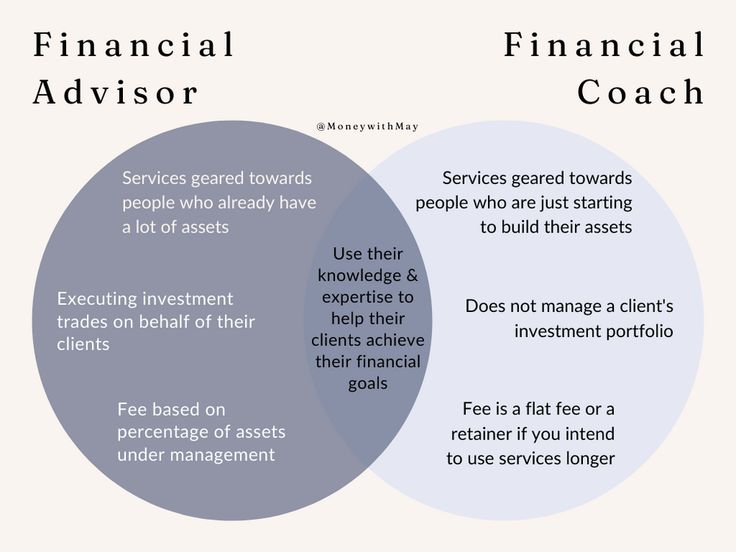
Consulting for banks offers a variety of benefits, including career path, travel, and salary. This article examines the benefits and implications of this role for the banking industry. We also examine the pros and cons of the role. We also look at the key challenges facing consultants, as well as the potential for relocation.
Benefits from consulting for banks
The need to increase efficiency and decrease costs is the reason why there is such a demand for consultants within the banking industry. Banks face regulatory changes like the Dodd-Frank Act which requires them to implement new procedures and systems. It is a rewarding career choice, but it takes extensive training and education. A bachelor's degree is usually required for bank consultants. On-the-job training is also required. They are required to have multiple licenses or certifications.
Bank consultants must be able to problem-solve and analyze well. They may need to explain complex financial concepts to customers and bank managers. They might also have to make recommendations based off information provided by clients.

Career path
Although there are similarities between both professions, there is a lot to be said for consulting and banking. Although one can work closely with an organization, they have drastically different cultures. Consultants work fewer hours per weeks than their banking counterparts. They also enjoy a more collegial environment. Consultants also get more weekend time, making them an ideal choice for those who value a flexible schedule.
The majority of consulting jobs are safe. But banking jobs require traveling. Many consultants who travel to New York, New Jersey, and London for work will spend significant time away.
Salary
Bank consulting salaries are comparable to most other types of consulting positions. However, bonuses often make up more than half of annual compensation. It is difficult to recruit the best candidates from the consulting sector because the more money is what makes investment banking so important. About half of McKinsey workers eventually went into the financial industry.
Consultants and bankers often lead similar lives, even though they work longer hours. In their first years, new bankers usually work between seventy and ninety hours per day. They are rarely free on weekends or Sundays. Consultants usually work 60 hours per semaine and may be required travel.

Travel
Banks are constantly looking for ways they can increase their travel offerings' value. They have a wide range of options. They can also use cloud technology and travel technology to improve agility and reduce costs. Offering travel advice, arranging for additional benefits and participating in business networking are just a few of the other options. A great way to attract clients is to offer referrals.
Travel consultants arrange travel arrangements and make recommendations. They also ensure that clients have a memorable experience. For their clients, they might also call the frequent flyer department to make sure that they get the best possible deals. They can also call the personal numbers of mileage experts to refer clients. These professionals can also be invited to participate in fam trips.
FAQ
What jobs are available as consultants?
Consultant work requires a deep understanding of business strategy, operations, and other aspects. It is important to understand the workings of businesses and how they fit into society.
Consultant work requires excellent communication skills and the ability to think critically.
Consultants need to be flexible as they might be assigned different tasks at different times. They must be flexible and able to change directions quickly if needed.
They must be willing to travel for their clients. This type work can take them anywhere in the world.
They need to be able and able to manage pressure and stress. Consultants may need to meet strict deadlines.
As a consultant you might work long hours. You might not always be paid overtime.
What qualifications are necessary to become a consultant
Not only is it important to have an MBA but you should also have business consulting experience. You must have at least two years' experience working in consulting and/or training within a large company.
You must have worked closely with senior management teams on strategy development projects. You will need to feel comfortable communicating ideas to clients and getting their support.
You'll also need to pass a professional qualification exam such as the Chartered Management Institute's Certified Management Consultant (CMC) certification.
How do I become successful as a consultant?
Find an area that you are passionate about. First, build relationships. It is important to understand the needs of clients and their business. You must also deliver results.
While you don't need to be the best at all things, it is important to be better than others. You also need to have a passion for what you do. It is not enough to simply say, "I want to become a consultant." It's important to believe in your abilities and do what you love.
What is a consultant?
Consultants provide services for others. It's not just a job title; it's a role where you help others achieve what they want from life. By helping people understand their options and helping to make the right decisions, you do this.
Consultants are experts at finding solutions to problems and challenges that arise when working on projects. They can provide guidance and advice on how to implement the solutions.
Consulting should be able address questions related to law, finance and technology.
Are consulting incomes subject to tax?
Yes. Taxes will be charged on consulting profits. The amount you earn depends on your annual income.
If you're self-employed, you can claim expenses on top of your salary, including rent, childcare, and food.
However, you can't deduct interest payments for loans, vehicle depreciation or the cost to purchase equipment.
If you earn less than PS10,000 per year, 25% can be claimed back.
However, even if your earnings exceed this threshold you may still be subject to tax depending on whether or not you are a contractor or an employee.
Pay as you Earn (PAYE) is the most common method of taxing employees. Contractors pay VAT.
Can I get a degree as a consultant?
Learning a lot about a subject and then applying it to your life is the best way to be an expert.
Start studying today if you want the skills to be a great manager!
You may not be able to get hired if you don't have relevant experience but a degree. If you have demonstrated that you have studied the same subjects as those who received the jobs, then you may still be eligible to apply.
But remember, employers will always look for candidates with real-world expertise.
Statistics
- My 10 years of experience and 6-step program have helped over 20 clients boost their sales by an average of 33% in 6 months. (consultingsuccess.com)
- So, if you help your clients increase their sales by 33%, then use a word like “revolution” instead of “increase.” (consultingsuccess.com)
- "From there, I told them my rates were going up 25%, this is the new hourly rate, and every single one of them said 'done, fine.' (nerdwallet.com)
- According to statistics from the ONS, the UK has around 300,000 consultants, of which around 63,000 professionals work as management consultants. (consultancy.uk)
- Over 62% of consultants were dissatisfied with their former jobs before starting their consulting business. (consultingsuccess.com)
External Links
How To
How can you find the best consultants?
When searching for a consultant, the first thing you should do is ask yourself what your expectations are. Before you start looking for someone to work with, it's important that you know your expectations. Make a list of everything you think you might need from a consultant. This could include things like; professional expertise, technical skills, project management ability, communication skills, availability, etc. Once you have identified your requirements, you might consider asking friends and colleagues to recommend you. Ask your friends or colleagues about any negative experiences they have had with consultants, and compare their recommendations with yours. Try searching online for recommendations if you don’t have any. You can post reviews on your previous work experiences on many websites like LinkedIn, Facebook and Angie's List. Use the feedback and ratings of others as a starting point to search for potential candidates. Finally, once you've got a shortlist of potential candidates, make sure to contact them directly and arrange an interview. At the interview, it is important to discuss your requirements and get their feedback on how they can help. It doesn’t matter who recommended them to you, just make sure they understand what you are trying to achieve and how they can help.